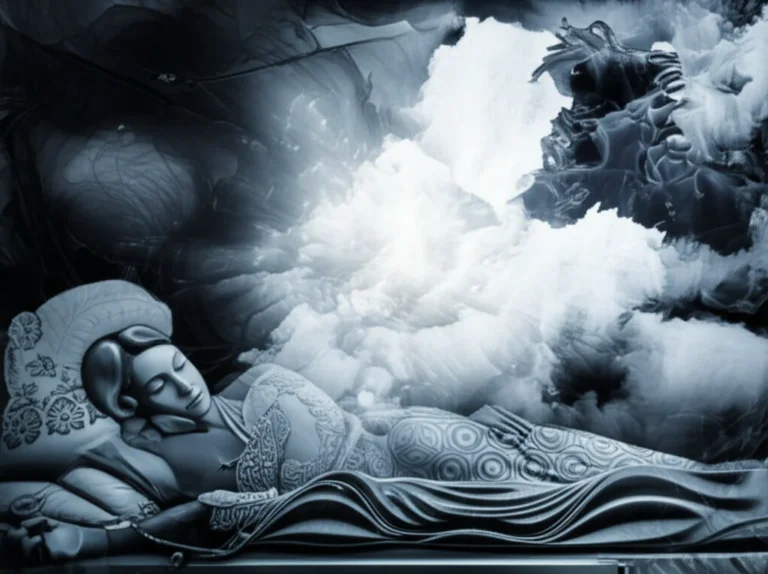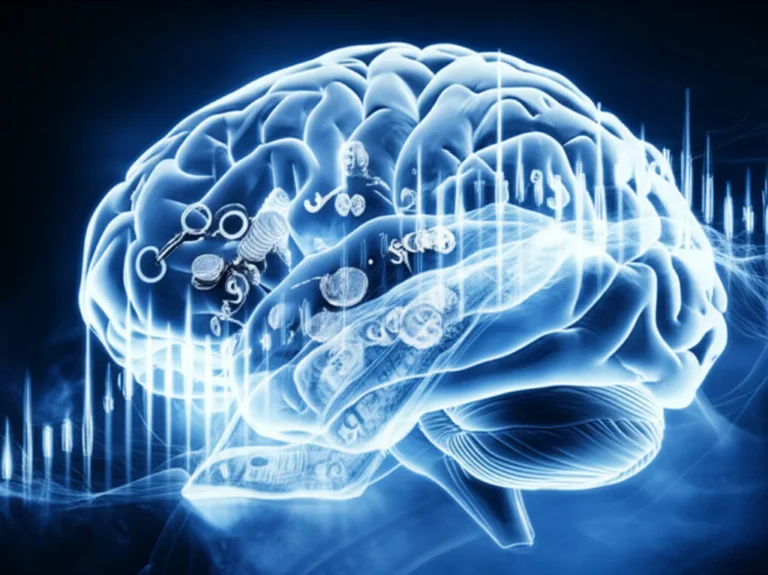Support our educational content for free when you buy through links on our site. Learn more
Is Dream Interpretation Real or Fake? [2024] 💭
Have you ever woken up from a dream and wondered what it meant? Dreams have fascinated humans since ancient times, with various interpretations and meanings attributed to them. But is dream interpretation real or just a bunch of hocus-pocus? In this article, we’ll dive deep into the world of dream interpretation to uncover the truth. Get ready to explore the science, the theories, and the mysteries behind our dreams!
Quick Answer
Dream interpretation is a complex and controversial topic. While some believe that dreams hold significant meaning and can provide insights into our subconscious mind, others view dream interpretation as nothing more than pseudoscience. The scientific community remains divided on the subject, with ongoing research and debates. Ultimately, whether dream interpretation is real or fake depends on your perspective and beliefs.
✅ Dream interpretation is a fascinating field that has captivated humans for centuries.
Quick Tips and Facts
Before we delve into the depths of dream interpretation, here are some quick tips and facts to keep in mind:
- Dreams can have multiple interpretations, and their meaning can vary from person to person.
- Dream symbols often reflect our emotions, experiences, and subconscious thoughts.
- Keeping a dream journal can help you remember and analyze your dreams.
- Dream interpretation is subjective and influenced by personal experiences and beliefs.
- There is no scientific consensus on the purpose of dreams or the validity of dream interpretation.
- Dreams can provide insights into our emotions, fears, desires, and unresolved issues.
- Some psychologists and therapists use dream analysis as a tool for self-discovery and therapy.
Now that we have the basics covered, let’s explore the background and history of dream interpretation to gain a deeper understanding.
Background: The Fascinating History of Dream Interpretation

Dream interpretation has a rich and intriguing history that dates back to ancient civilizations. Throughout the ages, dreams have been seen as messages from the gods, prophecies of the future, or windows into the subconscious mind. Let’s take a journey through time to explore the evolution of dream interpretation.
1. Ancient Civilizations: Messages from the Divine
In ancient civilizations such as Egypt, Mesopotamia, and Greece, dreams were believed to be messages from the divine. People sought guidance and predictions from their dreams, often consulting priests or oracles for interpretation. These interpretations heavily influenced their decisions and actions.
2. Sigmund Freud: The Interpretation of Desires
In the late 19th and early 20th centuries, Sigmund Freud, the father of psychoanalysis, revolutionized the field of dream interpretation with his groundbreaking work, “The Interpretation of Dreams.” Freud proposed that dreams are manifestations of our subconscious desires, often of a sexual nature. He believed that dreams provided a window into our hidden desires and unresolved conflicts.
Freud’s theories sparked intense debates among experts, with some embracing his ideas and others criticizing them as unscientific and subjective. Despite the controversies, Freud’s work laid the foundation for modern dream analysis.
3. Carl Jung: The Collective Unconscious
Carl Jung, a Swiss psychiatrist and protégé of Freud, offered an alternative perspective on dream interpretation. He believed that dreams serve as a counterpoint to conscious thoughts, providing a complete picture of an individual’s psyche. Jung introduced the concept of the collective unconscious, a reservoir of shared human experiences and archetypes that influence our dreams.
Jung’s theories expanded the scope of dream interpretation beyond individual desires and conflicts, emphasizing the collective aspects of the human psyche.
4. Scientific Approaches: Cognitive and Neuroscientific Perspectives
In more recent years, researchers have explored dream interpretation from cognitive and neuroscientific perspectives. Calvin Hall and Ann Faraday, among others, have focused on the cognitive meaning of dreams, suggesting that dreams reflect our waking life experiences and emotions.
Neuropsychologists like Alfred Kaszniak emphasize that dream interpretation is subjective and influenced by personal experiences and beliefs. They argue that dreams are a product of brain processes and do not hold any inherent meaning.
5. Ongoing Mysteries and Research
Despite centuries of exploration, the purpose and meaning of dreams remain elusive. The scientific community is divided on the subject, with ongoing research and debates. Some theories suggest that dreams aid in memory consolidation, while others view them as epiphenomena of brain processes.
The COVID-19 pandemic has also sparked interest in dreams, with many people reporting intense and vivid dreams during this time. Researchers are studying the phenomenon to better understand the relationship between dreams and our waking life experiences.
Exploring Dream Interpretation: Theories and Approaches
Now that we have a historical perspective on dream interpretation, let’s explore the different theories and approaches used in analyzing dreams. From symbolism to personal experiences, there are various lenses through which dreams can be interpreted.
1. Symbolism and Archetypes
One common approach to dream interpretation is analyzing the symbolism and archetypes present in dreams. Symbols can represent emotions, experiences, or even specific people in our lives. For example, dreaming of flying may symbolize a sense of freedom or empowerment, while dreaming of water may represent emotions or the unconscious mind.
Archetypes, as proposed by Carl Jung, are universal symbols or themes that appear in dreams and have deep cultural or psychological significance. These archetypes, such as the hero, the shadow, or the wise old man, can provide insights into our collective human experiences.
2. Personal Experiences and Emotions
Dreams often reflect our personal experiences, emotions, and unresolved issues. Analyzing the events and emotions in a dream can provide valuable insights into our subconscious mind. For example, dreaming about a past trauma may indicate unresolved emotional pain, while dreaming about a loved one may reflect our feelings towards that person.
By exploring the personal context of a dream, we can gain a deeper understanding of ourselves and our inner world.
3. Psychoanalytic Approaches
Psychoanalytic approaches, influenced by Freud’s work, focus on uncovering the hidden meanings and desires behind dreams. These approaches often involve free association, where the dreamer freely associates thoughts and emotions with the dream content.
By exploring the latent content (hidden meaning) of a dream, psychoanalytic approaches aim to uncover repressed desires, conflicts, or unresolved issues that may be influencing our waking life.
4. Cognitive and Neuroscientific Perspectives
Cognitive and neuroscientific approaches to dream interpretation focus on understanding the cognitive processes and brain mechanisms involved in dreaming. These approaches view dreams as a product of brain activity and do not assign inherent meaning to them.
Researchers in this field study the neural correlates of dreaming, the relationship between dreams and memory consolidation, and the cognitive processes involved in dream formation. While these approaches provide valuable insights into the science behind dreams, they do not address the subjective experience or personal meaning of dreams.
FAQ

Are dream interpretations true?
Dream interpretations are subjective and can vary from person to person. While some people find meaning and insights in their dreams, others may view them as random brain activity with no inherent significance. The truth of dream interpretations ultimately depends on individual beliefs and experiences.
Read more about “Dreams and Visions – The Ultimate Biblical Interpretation …”
Do dreams actually have meanings?
Dreams can have multiple meanings and interpretations. They often reflect our emotions, experiences, and subconscious thoughts. While some dreams may be influenced by our daily lives, others may tap into deeper aspects of our psyche. Exploring the meaning of dreams can provide valuable insights into ourselves and our inner world.
Read more about “… What is the Significant Meaning of Dreams?”
Can you really analyze dreams?
Dream analysis is a subjective process that involves exploring the symbols, emotions, and personal context of a dream. By analyzing these elements, we can gain a deeper understanding of ourselves and our subconscious mind. However, dream analysis should be approached with an open mind and an understanding that interpretations can vary.
Read more about “Best Dream Dictionary …”
Is there any truth in your dreams?
Dreams can provide insights into our emotions, fears, desires, and unresolved issues. They can tap into our subconscious mind and bring to light aspects of ourselves that may be hidden or repressed. While dreams may not predict the future or provide concrete answers, they can offer valuable self-reflection and personal growth.
Read more about “Christian Dream Symbols: Unlocking the Hidden Meanings …”
Conclusion

Dream interpretation is a fascinating field that has captivated humans for centuries. While some view dream interpretation as a pseudoscience, others find meaning and insights in their dreams. The truth of dream interpretation ultimately depends on your perspective and beliefs.
Throughout history, dreams have been seen as messages from the divine, manifestations of desires, reflections of personal experiences, and products of brain processes. Theories and approaches to dream interpretation have evolved, from symbolism and archetypes to psychoanalytic and cognitive perspectives.
Whether you believe in the power of dream interpretation or approach it with skepticism, exploring your dreams can provide valuable self-reflection and personal growth. So, the next time you wake up from a dream, take a moment to ponder its meaning and see what insights it may hold for you.
Recommended Links
- Dream Interpretation
- Dream Symbols Interpretation
- Prophetic Dreams
- Dream Symbols
- Dream Psychology
- Is there a website that interprets dreams?
Reference Links
- Dream Interpretation: Science or Pseudo-science? | OpenMind
- Dreams and Decision-Making: The Role of Emotions and Motivations
- The Interpretation of Dreams by Sigmund Freud
- The Archetypes and the Collective Unconscious by Carl Jung
👉 CHECK PRICE on: Dream Interpretation Books | Dream Analysis Tools




